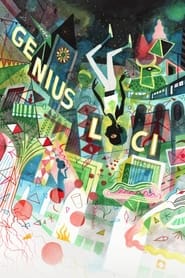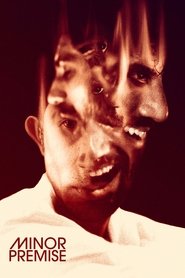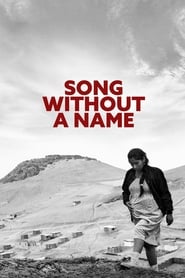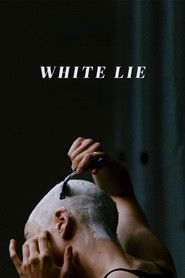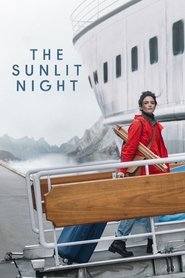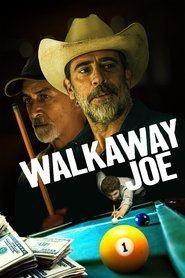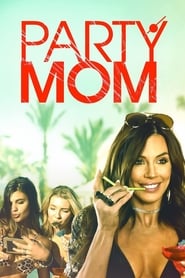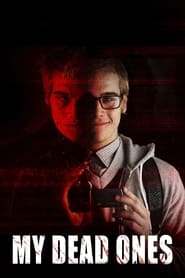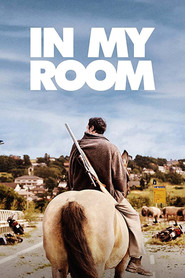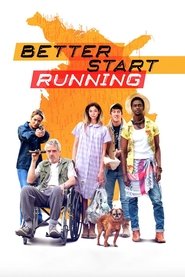Top Rated Drama Movies on Free Services - Page 327
-
Genius Loci
2020
Genius Loci
2020
star 6.2One night, Reine, a young loner, sees among the urban chaos a moving oneness that seems alive, like some sort of guide. -
Minor Premise
2020
Minor Premise
2020
star 5.2Attempting to surpass his father's legacy, a neuroscientist becomes entangled in his own experiment, pitting ten fragments of his consciousness against each other. -
The Good Witch's Destiny
2013
star 7.5As Cassie's birthday approaches, Lori discovers disturbing parallels between Cassie and her great aunt, who disappeared years before on her birthday. When signs of a curse appear, Cassie conjures up a little magic to make things right again. -
Three Summers
2020
Three Summers
2020
star 6.4Over a trio of summers, a caretaker for luxury condominiums relies on her resourcefulness and her eye for opportunity to take advantage of whatever comes her way. -
The Sleepwalkers
2019
The Sleepwalkers
2019
star 6.8A woman and her 14-year-old daughter, who is a sleepwalker, in the midst of awakening. A marriage on the edges of a silenced crisis. A ritualistic, matriarchal, and endogamous family. Grandmother, siblings, cousins. A new summer, sweat, alcohol, traditions. Naked bodies, changing bodies, and the gazes upon those emerging bodies. A new New Year's celebration in the old historic family mansion is the trap for the sleepwalkers to finally awaken. -
Alice Júnior
2020
Alice Júnior
2020
star 6.3This is the story of Alice Junior, a transgender girl full of life, who wants to give her first kiss, but first, she just wants to be who she really is. -
See You Soon
2019
See You Soon
2019
star 6A U.S. soccer star suffers a career-threatening injury in the run-up to the World Cup, and during his recovery, embarks on an epic romance with a Russian single mom. -
Song Without a Name
2020
Song Without a Name
2020
star 6.4Peru, at the height of the political crisis of the 1980s. Georgina is a young woman from the Andes whose newborn daughter is stolen at a fake health clinic. Her desperate search for the child leads her to the headquarters of a major newspaper, where she meets Pedro Campos, a lonely journalist who takes on the investigation. Based on a true story. -
White Lie
2019
White Lie
2019
star 6.5Katie Arneson is faking cancer. A university dance major, Katie's falsified diagnosis and counterfeit fundraising have transformed her into a campus celebrity surrounded by the supportive community she's always dreamed of. But now dependent on a bursary for sick students to maintain her ruse, Katie learns the funding is in jeopardy unless she can provide copies of her medical records within the week. -
Making Babies
2019
Making Babies
2019
star 5.9After years of "manually" trying to conceive, John and Katie Kelly put their bodies, wallet and marriage through the ringer of modern infertility treatments. -
The Sunlit Night
2020
The Sunlit Night
2020
star 5.5An aspiring painter meets eccentric locals and a fellow New Yorker while working on a barn in Norway. -
Walkaway Joe
2020
Walkaway Joe
2020
star 5.9A young boy named Dallas goes on a search for his pool-hustling father after he abandons their family. Dallas is determined to bring his father home when he meets Joe Haley, a drifter wrestling with a past he'd rather forget, who feels responsible for Dallas' safety and reluctantly takes him in. -
Love, of Course
2018
Love, of Course
2018
star 6.7A helicopter mom follows her daughter to college and lands a job on campus. When she meets a charismatic professor, she learns more about herself and discovers a life of her own. -
Journey to a Mother's Room
2018
star 6.3The movie about a daughter, who leaves home for the first time. Her mother, left behind, doesn't know how to fill the empty place. -
Party Mom
2018
Party Mom
2018
star 5.5When a “party mom” allows things to go too far with her daughter’s house party, murder and mayhem are the deadly consequences. -
The Wrong Daughter
2018
The Wrong Daughter
2018
star 5.5Kate and Joe have longed to be parents and are considering in vitro options... when Danica, a child Kate gave up 17 years ago, appears on Facebook. Danica comes to live with them, but she's not their real child. She's an impostor who will do anything, even kill, to get the mother's love she never had. -
This Magnificent Cake!
2018
star 6.7In 1885, Africa is a succulent cake destined to be wildly divided and everyone wants a piece. A disturbed European king, a Pygmy working in a luxury hotel, a successful but lonely businessman, an enslaved porter, a young army deserter, a ghostly clarinetist. Some benefit from colonialism and greed. Others suffer racism and violence. -
My Dead Ones
2018
My Dead Ones
2018
star 5.3Behind the looks of a shy film student, Davi hides an obscure past that is about to be revealed. -
In My Room
2018
In My Room
2018
star 5.8Armin, in his fourties, is a freelancer with lots of time and little money. He’s not really happy, but can’t picture living a different life. One morning the world looks the same as always, but mankind has disappeared. -
Better Start Running
2018
Better Start Running
2018
star 5.9An eclectic band of misfits becomes an unlikely family as they take a wild journey in the name of love while on the run from an overzealous FBI duo who want them dead or alive - preferably dead.
 Netflix
Netflix
 Amazon Prime Video
Amazon Prime Video
 Apple iTunes
Apple iTunes
 Apple TV Plus
Apple TV Plus
 Disney Plus
Disney Plus
 Google Play Movies
Google Play Movies
 Paramount Plus
Paramount Plus
 Hulu
Hulu
 HBO Max
HBO Max
 YouTube
YouTube
 fuboTV
fuboTV
 Peacock
Peacock
 Peacock Premium
Peacock Premium
 Amazon Video
Amazon Video
 The Roku Channel
The Roku Channel
 AMC+
AMC+
 Kocowa
Kocowa
 Hoopla
Hoopla
 The CW
The CW
 Vudu
Vudu
 Starz
Starz
 Showtime
Showtime
 PBS
PBS
 Pantaflix
Pantaflix
 FXNow
FXNow
 Tubi TV
Tubi TV
 Kanopy
Kanopy
 Comedy Central
Comedy Central
 Crunchyroll
Crunchyroll
 Microsoft Store
Microsoft Store
 Redbox
Redbox
 Sun Nxt
Sun Nxt
 ABC
ABC
 DIRECTV
DIRECTV
 Crackle
Crackle
 Fandor
Fandor
 Plex
Plex
